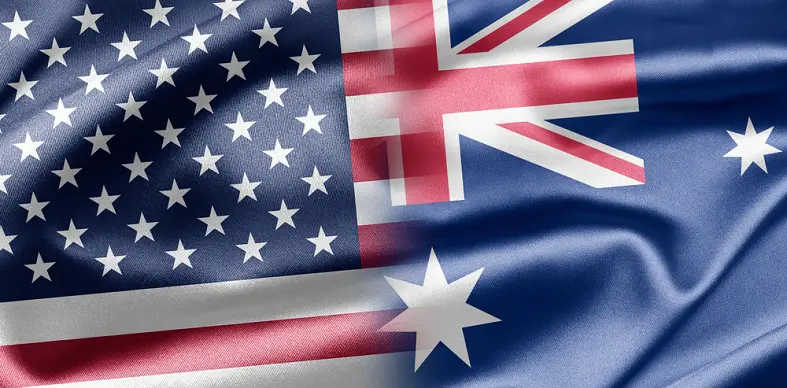
Written by staff writer.
The Australian government wants to triple the size of the domestic space sector by 2030, and harnessing Australia’s relationship with the United States is shaping up as the pathway to achieve that.
Head of the Australian Space Agency, Enrico Palermo, says space is an international endeavour and an industry built on strong partnerships. He recently specified by name the United States when talking about growing the Australian space sector.
The global space sector is worth around USD350 billion per annum and is tipped to exceed USD1.1 trillion by 2040. The government talks a big game about Australia’s space capabilities and its potential. However, in 2020, the OECD ranked Australia 18th among the G20 nations regarding space investment (as a percentage of GDP). Australia only ranked above Brazil and Mexico. However, Australia has the potential to catch up with better-performing countries.
A recently released report from KPMG and the American Chamber of Commerce (AmCham) titled “A Prosperous Future: Space Industry opportunities for Australia and the United States” reveals Australia’s space sector exported USD94 million worth of goods and services to the United States in 2020. The report envisions three scenarios by 2030: a business-as-usual outcome where exports will reach USD157 million annually, and an “accelerated” outcome where exports will hit USD394 million annually.
“The size of the US space industry, measured in revenue terms, is expected to grow by 67% over the decade 2020-2030 from USD201 billion to USD335 billion, suggesting a large potential for Australian businesses to participate in the US space sector’s supply chains,” the report says.
KPMG and AmCham highlight three focus areas for private entities in Australia’s space sector. They include leveraging domestic specialisations such as remote robotics and quantum science for space technology applications, working with US primes to tap into the global space sector, and shortening the time between commencing and commercialising a project.
“Getting this right could be a game changer for Australia. This highlights the export potential provided by the large US market, which will be further facilitated by close security ties,” the report noted, before adding that it was erroneous to assume that the US would always tap into its own sovereign space capabilities. The report says there are often significant economic and operational upsides to importing space capabilities, even when you are the world’s biggest space nation.
It mentions Australian space companies such as Skykraft, Saber Astronautics, Regrow, Myriota, Advanced Navigation, and Fleet Space Technologies as examples of local entities that have successfully developed and deployed new products and services either directly in the space industry or using space technologies.
The volume of Australia’s space exports to the United States declined between 2019 and 2021, an outcome attributed to COVID-19. Now most countries have learned to live with the virus, business and trade flows are normalising, but there are some concerns Australia’s space companies may struggle to access the rich US space market.
This is ostensibly due to challenging global economic conditions, including tightening capital markets, rising inflation and interest rates. There are also some concerns that the incumbent Australian government is not as focused on space as the previous government and that space has drifted off the national agenda.
NASA Administrator Bill Nelson and Deputy Director Pam Melroy were in Canberra in April to address this issue, and the recent 2023 Defence Strategic Review flagged the importance of keeping space in the national conversation and appropriately funded and supported.
The report says the global space sector, particularly the US space sector, presents increasing opportunities for Australia. “The US requires international partnerships to expand its space industry and is actively looking to invest and partner with Australian space companies,” the report said. “Australia can leverage its natural and structural advantages, strong foundations in many areas of the space industry, and the relationship with the US to realise the significant potential benefits from engagement in the space industry.”





